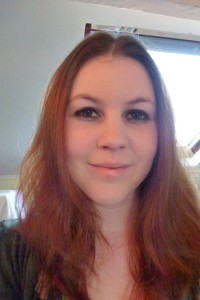Charlotte, our Archives Assistant (Graduate Trainee), spends quite a lot of her time working with our visitors and readers at the Reading Room desk, so she is the first person whom many of readers see or speak to. We thought we’d introduce her here in the first of our regular series of staff profiles.
A bit about Charlotte:
I’ve been the Reading Room Assistant here at MERL/Special Collections since last October. Before that, I studied English and Sociology at the University of Leeds, and volunteered in their special collections library, helping to catalogue the Tony Harrison and Melvin Bragg collections and digitising reel-to-reel tapes of poetry readings. In September, I’m starting the MA Archives and Records Management course at the University of Liverpool.
How did you get involved with Special Collections?
During my time as a volunteer, I decided that I’d like to pursue archiving as a career. So I began applying for Graduate Trainee posts, and was offered the job at MERL.
What is a typical day like for you? What have you been working on recently?
A usual day for me involves general Reading Room supervision, answering enquires about the collections, producing documents for readers and dealing with copying orders. I also have a couple of background cataloguing tasks ongoing. I have worked on the Centre for East German Studies Film Collection and the Hugh Sinclair project, and I’ve also started cataloguing small collections on Adlib, most recently a new accession of steam rally programmes.
What is your favourite part of Special Collections?
One of the main things I enjoy about my job is that I can work with so many different collections across both the Special Collections and the MERL archives, and I often come across unexpected and intriguing items. Recently, quite by accident, I discovered some old picture postcards showing images of Reading from around 1908, including the Market Place, Station Road and Broad Street, and it was fascinating to see how the city has changed. It’s also great to see on a daily basis how useful and interesting the archives are to researchers.



